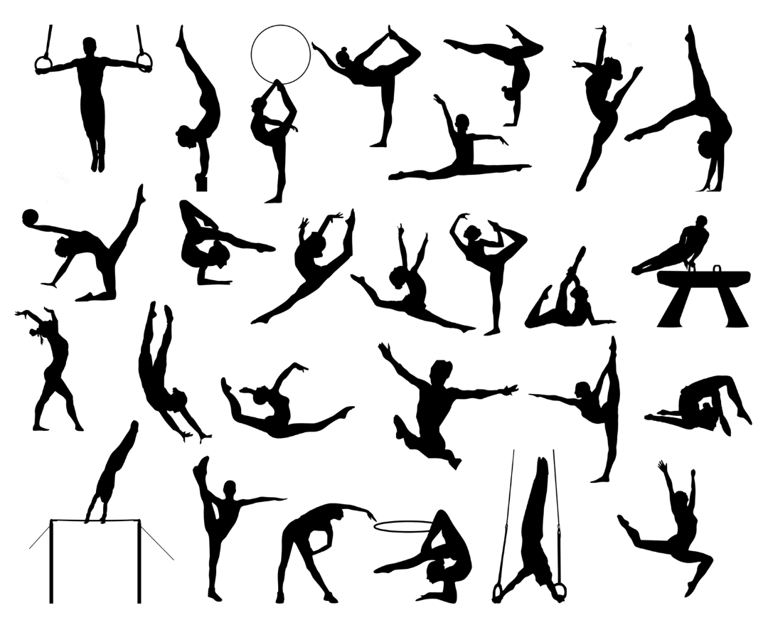Gymnastics Branches
What is gymnastics? How many gymnastics disciplines are there? What are they?
What is Gymnastics?
Gymnastics is a sport that involves physical exercises requiring balance, strength, flexibility, agility, coordination, and endurance. The movements performed in gymnastics contribute to the development of muscle groups in the arms, legs, shoulders, back, chest, and abdomen. Gymnastics evolved from exercises used by the ancient Greeks, including skills related to horseback riding and dismounting, as well as circus performance skills.
Modern gymnastics is a sport and training tool where the techniques of various apparatuses are performed in harmony with free body movements, either with or without music, in a coordinated and fluid manner, all within specific rules and with aesthetic and graceful integration.


Gymnastics Branches
There are many gymnastics disciplines, and here we will classify them into two categories: the first category includes the disciplines defined by the FIG (International Gymnastics Federation), and the second category includes the disciplines not defined by the FIG.




1- Disciplines recognized by FIG
Artistic Gymnastics
Artistic Gymnastics is typically divided into Men's and Women's gymnastics. Men compete in six events: Floor Exercises, Pommel Horse, Rings, Vault, Parallel Bars, and Horizontal Bar; while women compete in four events: Vault, Uneven Bars, Balance Beam, and Floor Exercises.
Rhythmic Gymnastics
According to FIG rules, Rhythmic Gymnastics is only competed by women. This discipline is a form of gymnastics that combines elements of ballet, gymnastics, dance, and apparatus manipulation. In rhythmic gymnastics, five different routines are performed using five apparatuses:
Hoop
Ribbon
Ball
Clubs
Rope
The performance is presented on a square floor area, and one of the key features of this discipline is that more emphasis is placed on aesthetics rather than acrobatic elements.
Additionally, athletes can compete individually or in groups of five. The choreography time for individual routines is 1.30 minutes, while in group performances, the time extends to 2.30 minutes.
Trampolining
The Trampoline discipline consists of four events: Individual Trampolining, Synchronized Trampolining, Double Mini Trampolining, and Tumbling. Since 2000, individual trampolining has been included in the Olympic Games. The first World Championship was held in 1964.
Acrobatic Gymnastics
Acrobatic Gymnastics is a group gymnastics discipline for both men and women. Acrobatics in pairs, trios, and fours perform routines using the heads, hands, and feet of their partners.
Aerobic Gymnastics
Aerobic Gymnastics consists of complex and high-intensity aerobic movement patterns performed to music. These routines require a combination of dynamic, rhythmic, low and high-impact movements, integrating basic aerobic steps with continuous arm motions in a creative manner. Aerobic gymnastics has various forms and sub-disciplines: Individual Men, Individual Women, Mixed Pairs, Trios, Groups (5 members), Dance, and Step (8 members). Routines typically last between 60-90 seconds (depending on age, category, and discipline).
The World Championship has been held since 1995.
Parkour
Known as "Freerunning," Parkour was officially approved by the FIG to begin development as one of the recognized sports disciplines on January 28, 2018. Since then, the FIG has started organizing World Cup competitions, and the first Parkour World Championship was held in 2020.
Official events include:
Speedrun
Freestyle
2- Disciplines not recognized by FIG


The following disciplines are currently not recognized by FIG (Fédération Internationale de Gymnastique):
Aesthetic Group Gymnastics (AGG)
TeamGym
Wheel Gymnastics
Mallakhamba
Non-competitive Gymnastics (Gymnastics for All)


SOURCES


"Fédération Internationale de Gymnastique". www.fig-gymnastics.com. Retrieved November 27, 2018.
USA Gymnastics, the governing body for gymnastics in the US
British Gymnastics, the governing body for gymnastics in the UK
Brazilian Gymnastics, the governing body for gymnastics in the Brazil
https://www.tcf.gov.tr/branslar/
















